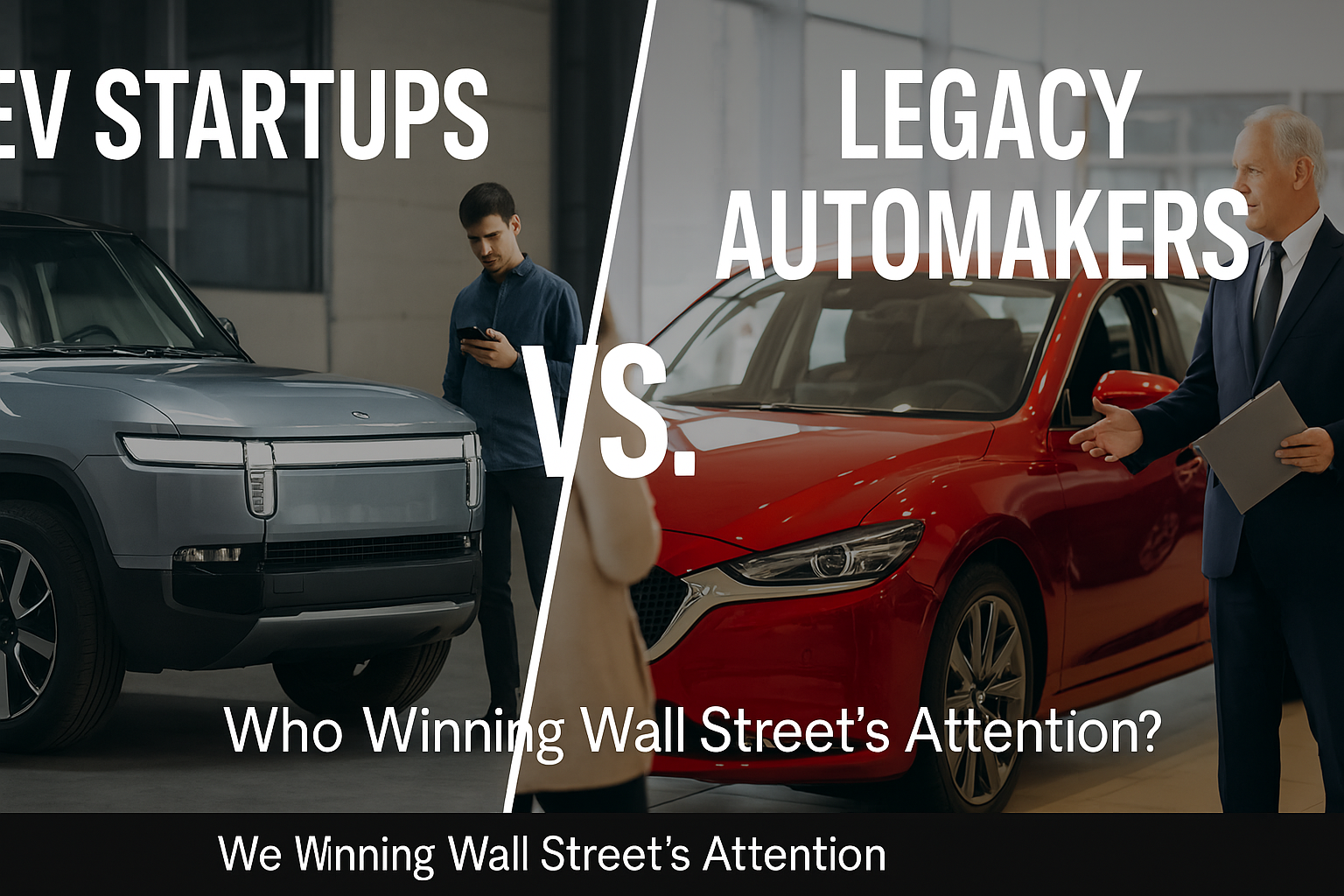
The electric vehicle (EV) race has matured beyond hype and headlines—it’s now a battle for market share, technology leadership, and investor capital. In 2025, Wall Street is closely watching a fascinating tug-of-war between bold EV startups like Rivian, Lucid, and Fisker, and legacy automakers like Ford, General Motors (GM), and Volkswagen, who are doubling down on electrification.
But who’s actually winning investor confidence in the current market?
⸻
1. The Startups: Innovation-Fueled Hype Meets Growing Pains
EV startups burst onto the scene with revolutionary tech, futuristic designs, and sky-high valuations. But now, as the market demands scale, profitability, and consistent delivery, the spotlight has started to shift.
• Rivian still holds investor interest with its Amazon partnership and well-reviewed R1S and R1T models. However, production delays and high burn rates have cooled enthusiasm.
• Lucid impresses with its ultra-luxury performance, but its stock remains volatile amid concerns over global demand and cash reserves.
• Fisker made headlines with its affordable Ocean SUV, but execution issues and supply chain hiccups are keeping analysts cautious.
2025 Stock Trend:
Startups are facing tough scrutiny—only those that prove scalability and cost control are holding value.
⸻
2. Legacy Automakers: Slow Starters, Strong Finishers
While traditional automakers were late to the EV party, their experience, infrastructure, and financial muscle are proving to be long-term assets.
• Ford’s F-150 Lightning continues to dominate the electric truck space. The company’s BlueOval EV division has shown significant revenue growth in 2025.
• GM has rolled out a strong Ultium-based EV lineup across multiple price points. Its Cruise autonomous unit also adds tech appeal.
• Volkswagen remains a global EV force, expanding its ID family and boosting production efficiency through vertical integration.
2025 Stock Trend:
Legacy players are gaining momentum on Wall Street due to consistent delivery, improved margins, and aggressive EV roadmaps.
⸻
3. Where the Money is Moving
Institutional investors are increasingly rotating into legacy automakers, seeing them as “value meets growth” plays. ETFs like iShares Global Auto & EV have rebalanced to include more Ford and GM while trimming exposure to unprofitable startups.
Private equity and sovereign wealth funds, however, are still betting on the potential of select startups—especially in markets like autonomous driving, battery innovation, and ride-sharing platforms.
⸻
4. What Investors Are Really Looking For
In 2025, Wall Street is focused on four key metrics:
• Scalability — Can the company deliver at volume?
• Cash Flow Stability — Is the business sustainable without constant capital raises?
• Tech Edge — Does the company own or lead in critical EV innovations?
• Global Strategy — Is there a plan to capture international market share?
Startups tend to score high on innovation, while legacy automakers win on stability and infrastructure.
⸻
Final Thoughts: It’s Not a Race, It’s a Realignment
Wall Street isn’t choosing between startups or legacy players—it’s choosing the companies best positioned for profitable growth. In 2025, that often means leaning toward established automakers with EV momentum, while keeping a speculative eye on breakout startups that can scale without stumbling.
The future of EV investment lies in those who blend tech vision with execution discipline. In this battle, there won’t be just one winner—only those that adapt, innovate, and deliver.